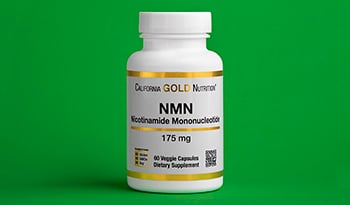Choline For Brain Health: A Guide to Benefits, Types + More

What Influences Brain Health?
As per the definition of the WHO (World Health Organization), brain health is the state of brain functioning across cognitive, sensory, social-emotional, behavioral, and motor domains, allowing a person to realize their full potential over the course of life, irrespective of the presence or absence of disorders.
Several factors can influence brain health. The brain has the capability to adapt and respond to stress and adversity. Impaired brain health negatively influences the individual’s overall health and well-being. Brain health depends on the preservation of optimal brain structure and function. It is thought that brain health may be influenced by various determinants such as physical health, the environment, physical safety and financial security, opportunities for social convergence, and access to health and social services.
Acetylcholine: A Key Neurotransmitter For Brain Function
Neurotransmitters regulate a wide range of brain functions and behaviors, including mood, memory, learning, and movement. Imbalances in neurotransmitters have been linked to mental health disorders and, therefore, to impaired brain health. Brain function can be affected by the availability of dietary precursors of neurotransmitters.
Acetylcholine (ACh) is an important neurotransmitter largely distributed throughout the central, peripheral, and autonomic nervous systems.
Neurons using ACh as a neurotransmitter are defined as cholinergic. Cholinergic neurons are primarily located in the cerebrum, and they contribute to the control of sleep-wake cycles, state of consciousness, muscle tone, and stretch reflexes, as well as in cognitive functions like attention, memory, and arousal.
Decreased and reduced levels of brain ACh have been associated with important neurological disorders such as Alzheimer’s disease and the non-motor symptoms of Parkinson's disease, such as memory problems.
The Importance Of Choline Supplements
Decreased levels of ACH can also be linked to various non-l disease conditions, including age-related memory and concentration difficulties, sleep deprivation, and potentially certain mental health conditions like depression and attention-deficit/hyperactivity disorder. In these non-disease conditions, supplements increasing brain ACh levels and/or release can be useful to maintain brain health. ACh cannot be taken as a dietary supplement as it does not cross the blood-brain barrier.
However, supplements that increase the release of ACh, such as choline supplements, may boost ACh levels. Choline and choline-containing phospholipids represent the supplements considered for increasing brain ACh levels/release and to maintain or improve brain health.
Food Sources Of Choline
Choline is an essential nutrient and is obtained largely from the diet. Choline is found in food in both fat-soluble and water-soluble forms. It is contained in eggs, liver, meat, fish, poultry, and dairy products, and some plant-based foods like cruciferous vegetables.
The two forms of choline, whether by diet or supplementation, are choline salts and choline-containing phospholipids. Although both can pass the blood-brain barrier, it is expected that the structure of choline-containing phospholipid may be more effective than choline alone at enhancing ACh availability and release, leading to potential cognitive improvements.
Another point in favor of using choline-containing phospholipids as a supplement for enhancing cholinergic neurotransmission is their tolerability compared with choline. Choline doses that are greater than estimated intake from food have been associated with body odor, sweating, salivation, hypotension, and hepatotoxicity. No risks of these problems were reported for choline-containing phospholipids.
Types Of Choline
To support brain health, look for choline-containing phospholipids. Currently, the most well-known choline-containing phospholipids available as supplements for supporting brain health include phosphatidylcholine (lecithin), phosphatidylserine, cytidine 5′-diphospho-choline (CDP-choline or citicoline), and alpha-glyceryl-phosphorylcholine (Alpha-GPC /choline alphoscerate).
The choline contents of these compounds are reported below.
Compound | Reference Dose | Choline Content |
Phosphatidylcholine (Lecithin) | 100 mg | 11.23 mg |
Phosphatidylserine | 100 mg | 11.14 mg |
CDP-choline | 100 mg | 20 mg |
Alpha-glyceryl-phosphorylcholine (Alpha-GPC) | 100 mg | 40mg |
Alpha-Gpc
Alpha-glyceryl phosphorylcholine (Alpha-GPC or choline alphoscerate) is a semi-synthetic derivative of lecithin with the highest level of available choline in this class. Following oral administration, it is converted to phosphorylcholine, a metabolically active form of choline able to reach the cholinergic nerve terminals, where it increases ACh synthesis, levels, and release. Studies using animal models and human trials have shown its ability to increase ACh release in the brain, facilitate learning and memory, and potentially reduce brain atrophy in areas related to learning and memory. Among molecules more extensively investigated in clinical studies, alpha-glyceryl phosphorylcholine provided interesting effects and partly countered the atrophy occurring in the brain areas involved in learning and memory. These observations suggest that this molecule would merit further evaluation in larger clinical trials.
Phosphatidylcholine
Early attempts at treating Alzheimer's disease using choline or phosphatidylcholine as cholinergic precursors were not successful. However, other choline-containing phospholipids, like CDP-choline and alpha-glyceryl-phosphorylcholine, have shown more promising results, suggesting potential cognitive improvements in neurodegenerative disorders.
Phosphatidylcholine increases serum choline levels more effectively than orally administered choline. Apparently, it may accelerate brain ACh synthesis through enhanced availability of choline. Phosphatidylcholine, which is largely available as a nutraceutical, has been tried in the treatment of dementia, but no trials have reported clear clinical benefits of this compound in Alzheimer’s or Parkinson’s disease.
Phosphatidylserine
Phosphatidylserine is produced synthetically and from soy lecithin. Supplementation of this phospholipid is based on the observation that reduced levels of phosphatidylserine in the brain are associated with mild cognitive impairment to overt dementia. There have been a limited number of studies and subjects investigated to conclude that this compound improves brain health.
Citicoline
Cytidine 5′-diphosphocholine (CDP-choline or citicoline) is a compound available in the pharmaceutical market since the beginning of the 1980s. It is marketed as a prescription drug in several European countries and in Japan, and as a nutraceutical in the USA. The activity of citicoline on the cognitive domain was analyzed in several studies showing its effectiveness in the treatment of cognitive, emotional, and behavioral disorders. Several studies have demonstrated positive effects of the compound on cognition, whereas other investigations failed to confirm the positive results in the cognitive domain. In view of these discrepancies, additional clinical studies are necessary to confirm the potential benefits of CDP-choline in improving brain health.
Should You Supplement With Choline?
Choline is an essential nutrient involved in ACh synthesis, choline-containing phospholipids like CDP-choline, and to a greater extent, Alpha-GPC/choline alphoscerate show more promise as potential therapeutic agents for their ability to enhance ACh availability and release, leading to potential cognitive improvements and other neuroprotective effects. Some choline-containing phospholipids should therefore be considered as agents to keep an optimal brain health.
References:
- Colucci L, Bosco M, Rosario Ziello A, Rea R, Amenta F, Fasanaro AM. Effectiveness of nootropic drugs with cholinergic activity in treatment of cognitive deficit: a review. J Exp Pharmacol. 2012 Dec 11;4:163-72. doi: 10.2147/JEP.S35326. PMID: 27186129; PMCID: PMC4863555.
- Roy P, Tomassoni D, Nittari G, Traini E, Amenta F. Effects of choline containing phospholipids on the neurovascular unit: A review. Front Cell Neurosci. 2022 Sep 23;16:988759. doi: 10.3389/fncel.2022.988759. PMID: 36212684; PMCID: PMC9541750.
- Sagaro GG, Traini E, Amenta F. Activity of Choline Alphoscerate on Adult- Onset Cognitive Dysfunctions: A Systematic Review and Meta-Analysis. J Alzheimers Dis. 2023;92(1):59-70. doi: 10.3233/JAD-221189. PMID: 36683513; PMCID: PMC10041421.
- Sagaro GG, Amenta F. Choline-Containing Phospholipids in Stroke Treatment: A Systematic Review and Meta-Analysis. J Clin Med. 2023 Apr 14;12(8):2875. doi: 10.3390/jcm12082875. PMID: 37109211; PMCID: PMC10143951.
- Tayebati SK, Amenta F. Choline-containing phospholipids: relevance to brain functional pathways. Clin Chem Lab Med. 2013 Mar 1;51(3):513-21. doi: 10.1515/cclm-2012-0559. PMID: 23314552.
- Tayebati SK, Marucci G, Santinelli C, Buccioni M, Amenta F. Choline-Containing Phospholipids: Structure-Activity Relationships Versus Therapeutic Applications. Curr Med Chem. 2015;22(38):4328-40. doi: 10.2174/0929867322666151029104152. PMID: 26511472.
- Traini E, Bramanti V, Amenta F. Choline alphoscerate (alpha-glyceryl-phosphoryl-choline) an old choline- containing phospholipid with a still interesting profile as cognition enhancing agent. Curr Alzheimer Res. 2013 Dec;10(10):1070-9. doi: 10.2174/15672050113106660173. PMID: 24156263.
DISCLAIMER:This Wellness Hub does not intend to provide diagnosis...
















































































 Table of Contents
Table of Contents














